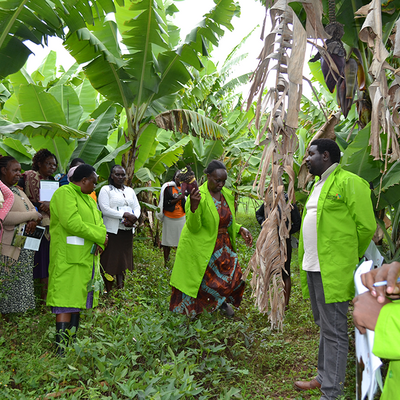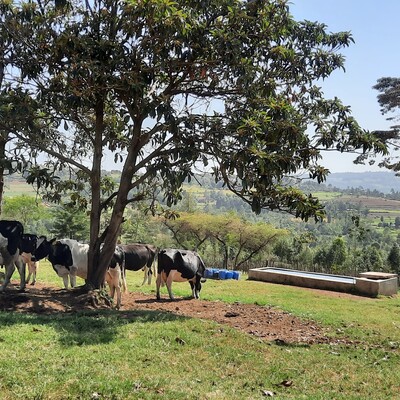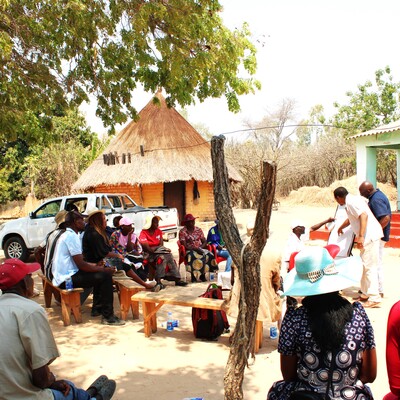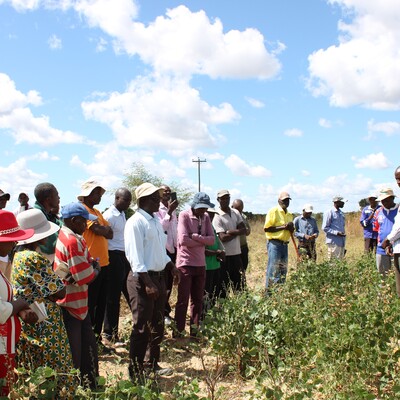
Creating space for multi-stakeholder engagement for sustainable agricultural intensification
 The third International Learning Alliance (ILA) meeting for sustainable intensification was held July 10–12, 2018, in Lusaka, Zambia. The ILA is a global-level Sustainable Agricultural Intensification Research and Learning in Africa (SAIRLA) program cross-institutional community of practice which aims at developing a strategy for informing policy and building institutional capacity for sustainable intensification.
The third International Learning Alliance (ILA) meeting for sustainable intensification was held July 10–12, 2018, in Lusaka, Zambia. The ILA is a global-level Sustainable Agricultural Intensification Research and Learning in Africa (SAIRLA) program cross-institutional community of practice which aims at developing a strategy for informing policy and building institutional capacity for sustainable intensification.
This blog is a reflection of the ILA and lessons from the Ethiopia National Learning Alliance (NLA).
The previous two ILA meeting were held in Malawi (November 2016) and Ghana (October 2017). Million Gebreyes, the NLA lead facilitator and Simret Yasabu, communications expert with the Ethiopian NLA, attended the Lusaka meeting.
Other participants in the Lusaka NLA were the SAIRLA program management team, SAIRLA- supported research leads, a Department for International Development (DFID) representative and DFID- commissioned consultant, and NLA facilitation teams from Ghana, Malawi, Tanzania and Zambia.
The first day of the workshop was dedicated to sharing understanding and learning about the progresses of SAIRLA. In line with this, presentations were made by the SAIRLA program team, NLAs’ and SAIRLA Research Projects. The learning alliances went into detail about the policy or investment issues they are seeking to address for each learning theme they have identified, the evidence and tools they have or need to engage with these investment issues, and the available opportunities and the decision-makers they are engaging with, the processes they are developing for these opportunities and any outcome to date.
The presentations focused on the progress made towards achieving policy informing/influence which is a main goal of the SAIRLA program. The lessons shared in the meeting were also useful for the NLAs because they showed the challenges and opportunities in engaging with decision makers in Africa. Experiences from the Tanzania NLA in working with parliamentarians was highlighted as a model to other NLAs in engaging policymakers.
On the second day, participants explored possible joint cross-country ‘products‘ from the NLAs. They brainstormed possible thematic areas which cut across countries and came up with ICT use for sustainable agricultural intensification (SAI), understanding trade-offs, and land tenure as the top three themes. Three groups, each with representatives of the national learning alliances deliberated on the current works of NLAs in the three thematic areas and developed an action plan for documenting cross-country experiences. Accordingly, the Ethiopian NLA is assigned to work on two of the thematic issues, ICT for SAI and trade-offs, to share Ethiopia’s experiences.
On the last day of the meeting, discussions on investment options were held with key Zambia NLA stakeholders including donors and the private sector on possible investment areas and options. Later, four decision makers, the head of the national commodity exchange company, a Food and Agriculture Organization of the United Nations (FAO) representative, representative from a non-governmental organization working with private sector, a farmer organization representative and a representative from the Swedish Embassy presented their views on the type of research they would like to see carried out the learning alliances.
Afterwards, the ILA participants made pitches to these decision makers and engaged with them. The exercise brought to the fore interesting insights for the NLAs. First of all, the engagement with the private sector actors revealed the importance of translating messages into useable business ideas in order to persuade private actors. It was also interesting to see the role of boundary-spanning organizations, such as the NGO working to strengthen private sector actors, in bridging the gap between private sector actors’ development practitioners and donors.
Overall, the ILA meeting was useful in facilitating learning among SAIRLA projects. For the NLA facilitation teams, it showed that ensuring sustainable agricultural intensification presents a wicked problem with ambiguous definitions of what the problem is and even more ambiguous ideas on its solutions. Wicked problems require deliberation, negotiation and co-production to arrive at acceptable and useable solutions. The ILA opened up the space for a multi-stakeholder engagement and process in SAI to flourish.
By Million Gebreyes.

















